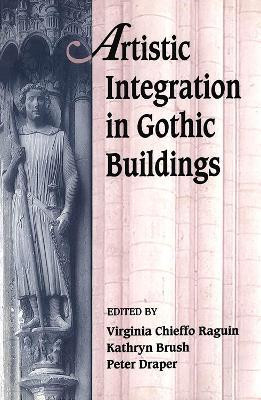Artistic Integration in Gothic Buildings(English, Electronic book text, unknown)
Quick Overview
Product Price Comparison
In this collaborative work seventeen international scholars use contemporary methodologies to address the ways in which we understand Gothic church buildings today. Artistic Integration in Gothic Buildings discusses major monuments that have traditionally stood at the core of medieval art-historical studies: the cathedrals of Durham, Wells, Chartres, Reims, Poitiers, Strasbourg, and Naumburg, the abbey of Saint-Denis, and the Sainte-Chapelle of Paris. The contributors approach the subject from different specialties and methodologies within the field of art history, as well as from the disciplines of history, liturgical studies, and theology. Willibald Sauerl)nder's overview acknowledges that since the early nineteenth century scholars have been confronted with monuments that no longer perform their original functions. The moment of the creation of these great cages of stone, filled with images in metal, paint, glass, stone, and textiles, has passed as surely as Villon's `snows of yesteryear.' Artistic intentions shifted continuously over the centuries as these great buildings were adapted to new situations, historical, cultural, and religious. Once the settings for complex and diversified rituals of religious, social, and political dimensions, the buildings today stand in a completely different time frame and are experienced by a different audience. This volume addresses the hermeneutics of the development of scholarship concerning the Gothic church, reviewing the variable, but largely exclusive, agendas from the early nineteenth century to the present, including those of Viollet-le-Duc, Lef|vre-Pontalis, M+le, Sedlmayr, Von Simson, Panofsky, Grodecki, and Bony. The conclusion is that there is no way to return to the original Gothic cathedral or the original audience. Artistic Integration in Gothic Buildings reassesses the traditional canon through a new pluralism of approaches and presents the Gothic church as an intricate and complex living monument that has been evolving over eight centuries and more.


